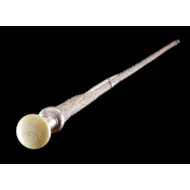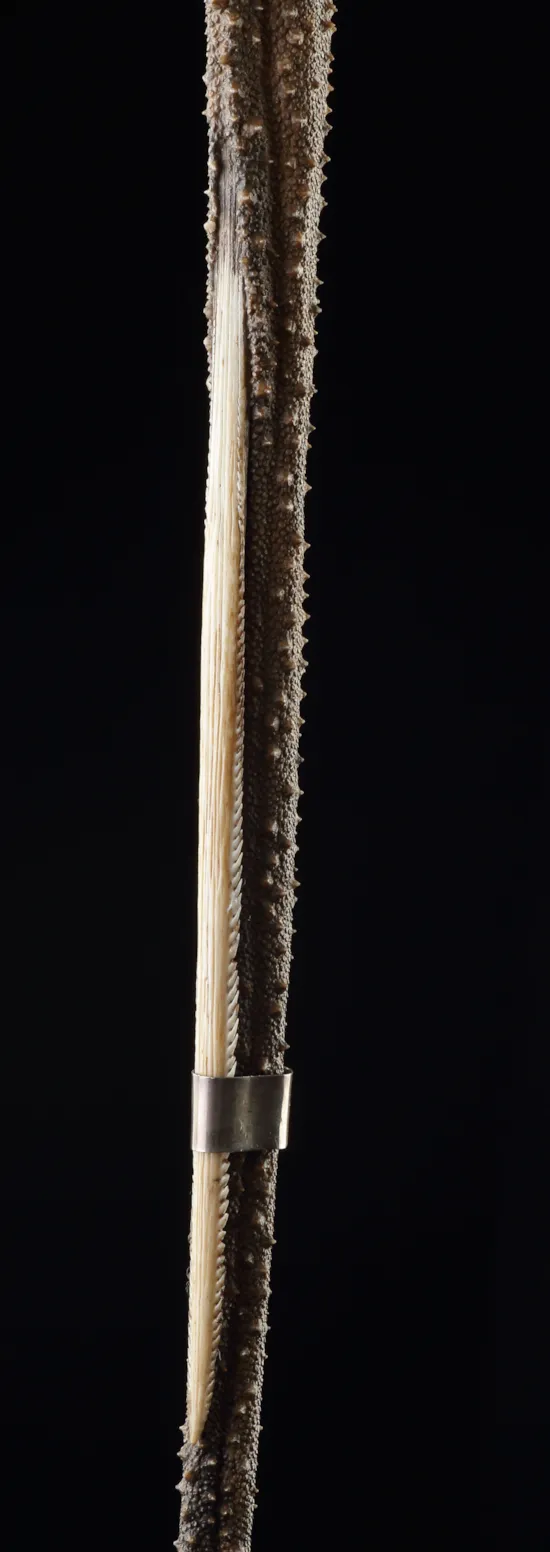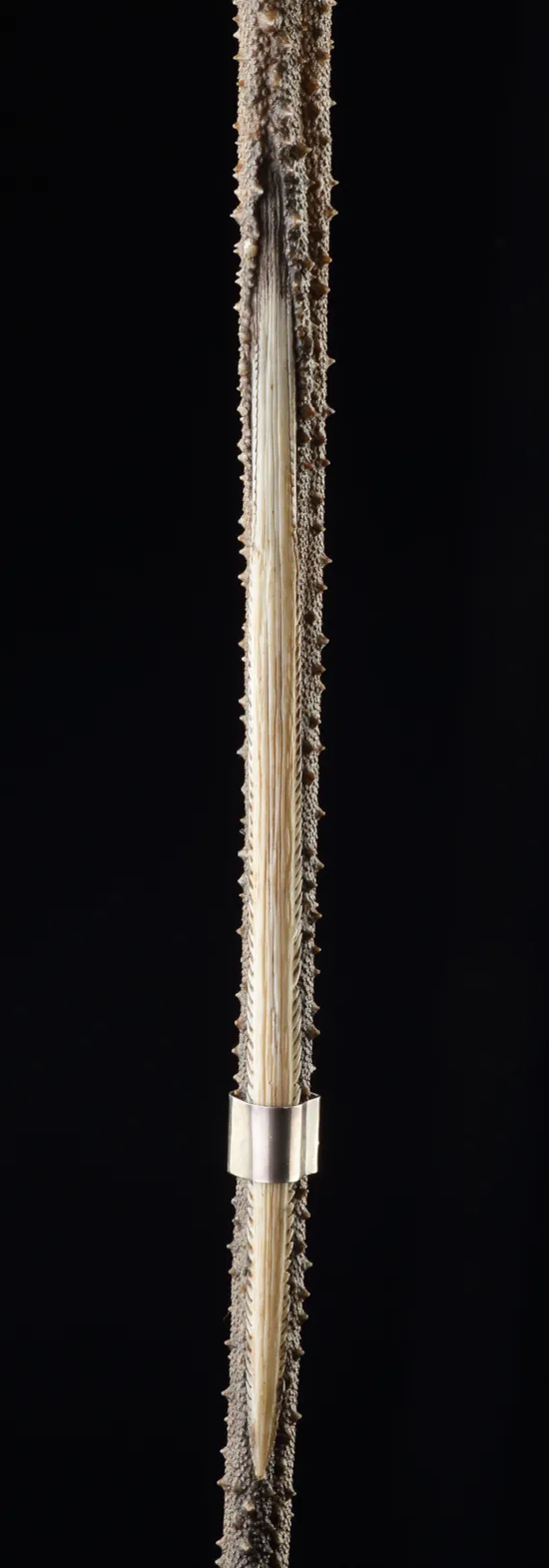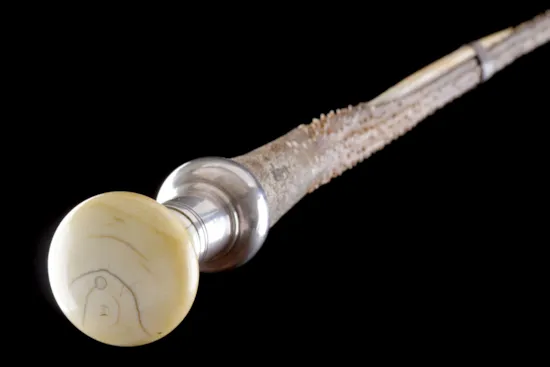An Interesting and Curious ‘Wunderkammer’ Walking Cane Fashioned from the Long Tail of a Giant Eagle Ray ‘Myliobatis Aquila’
An Interesting and Curious ‘Wunderkammer’ Walking Cane Fashioned from the Long Tail of a Giant Eagle Ray ‘Myliobatis Aquila’
Mounted with a colonial silver collar and turned colonial ivory knop
Original ferrule to the tip
Sri Lanka or Goa
Early 19th Century
Size: 90.5cm long - 35½ ins long
Mounted with a colonial silver collar and turned colonial ivory knop
Original ferrule to the tip
Sri Lanka or Goa
Early 19th Century
Size: 90.5cm long - 35½ ins long
An Interesting and Curious ‘Wunderkammer’ Walking Cane Fashioned from the Long Tail of a Giant Eagle Ray ‘Myliobatis Aquila’
Mounted with a colonial silver collar and turned colonial ivory knop
Original ferrule to the tip
Sri Lanka or Goa
Early 19th Century
Size: 90.5cm long - 35½ ins long
Mounted with a colonial silver collar and turned colonial ivory knop
Original ferrule to the tip
Sri Lanka or Goa
Early 19th Century
Size: 90.5cm long - 35½ ins long
Eagle rays swim in the Atlantic Ocean from Britain to Senegal as well as the Mediterranean and Adriatic Seas. They are more active than Stingrays feeding on crustaceans and molluscs they forage on the sea bed. They are large graceful fish with pointed wing like pectoral fins and extraordinary long thin tails. These were sometimes put to use by sailors and made into an instrument of punishment.
Ex Private English collection
cf For another example housed in a Morocco leather case, see Finch and Co catalogue number, 26, item number 50, 2016
cf For another example housed in a Morocco leather case, see Finch and Co catalogue number, 26, item number 50, 2016
An Interesting and Curious ‘Wunderkammer’ Walking Cane Fashioned from the Long Tail of a Giant Eagle Ray ‘Myliobatis Aquila’

SOLD



































